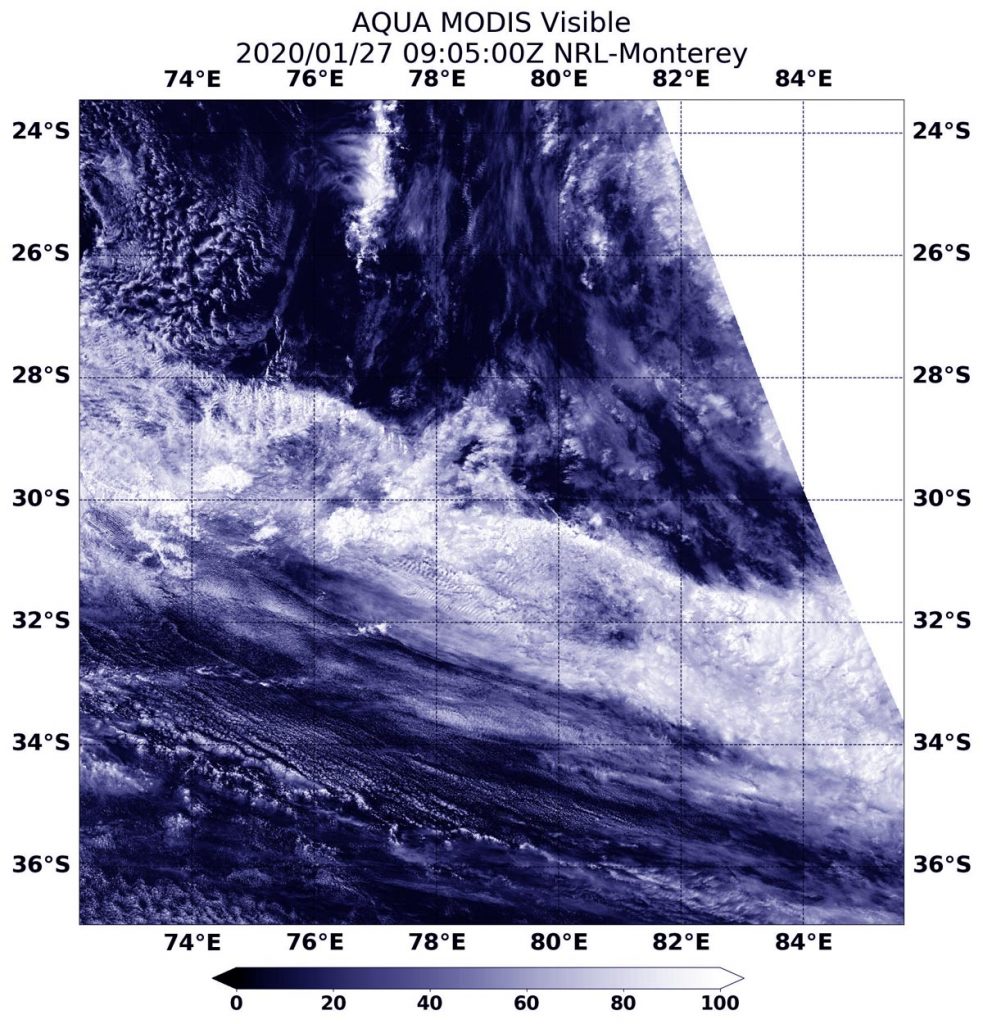Jan. 27, 2020 – NASA’s Aqua Satellite Reveals Tropical Cyclone Esami’s Dissipation
Tropical Cyclone Esami formed in the Southern Indian Ocean and just three days later, visible imagery from NASA’s Aqua satellite confirmed the storm had dissipated.

Tropical Cyclone Esami formed on January 24 at 4 p.m. EST (2100 UTC) about 764 miles east-southeast of Port Louis, Mauritius. Esami’s maximum sustained winds peaked the next day on Jan. 25 at 45 knots (52 mph/83 kph).
On January 26 at 4 p.m. EST (2100 UTC), the Joint Typhoon Warning Center issued their final warning on Tropical Cyclone Esami. At that time, Esami had weakened to a depression with maximum sustained winds near 30 knots (34.5 mph/55.5 kph). It was located near latitude 29.8 degrees south and longitude 77.9 degrees west, about 1,260 miles east-southeast of Port Louis, Mauritius. The depression was moving to the south-southeast and was dissipating.
When NASA’s Aqua satellite passed over the Southern Indian Ocean on Jan. 27 at 4:05 a.m. EST (0905 UTC), the Moderate Resolution Imaging Spectroradiometer or MODIS instrument provided a visible image that revealed the remnants of Esami were dissipating.
Typhoons and hurricanes are the most powerful weather events on Earth. NASA’s expertise in space and scientific exploration contributes to essential services provided to the American people by other federal agencies, such as hurricane weather forecasting.
